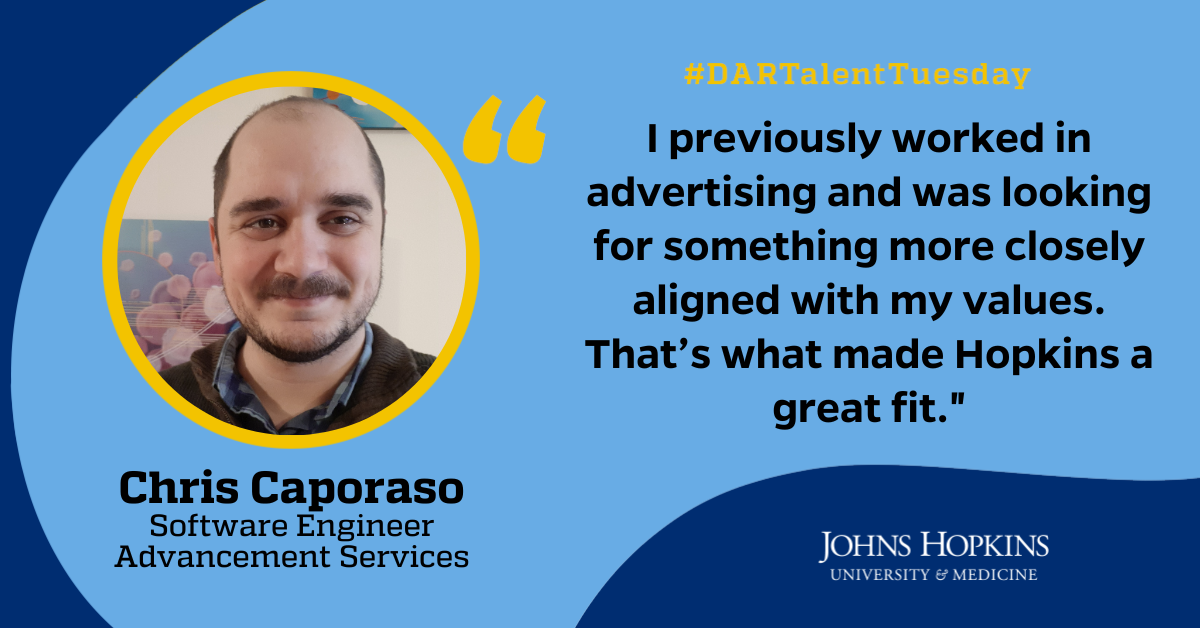Chris Caporaso

Chris had only a faint idea of what goes into development work when applying for his role as a software engineer, but he says that’s entirely changed in the six years since accepting the job. His work is mostly dedicated to building websites and applications that support development offices, from adding new features and applying security updates, to addressing customer support tickets. Lately, though, much of his focus has been on JHAS, our new customer relationship management system, and adapting existing processes to work with the new system in anticipation of its launch in March 2023.
What brought you to Johns Hopkins?
I moved to Baltimore in 2015 when my partner started a PhD program at Johns Hopkins. I previously worked in advertising and was looking for something more closely aligned with my values. That’s what made Hopkins a great fit — the connection with the university was already there, and supporting higher education is something I care about.
What does your job involve that others might not realize?
Behind the front-facing websites that our users interact with is a complex system of servers and applications communicating with each other. A feature that seems simple might be pulling data from multiple sources, then submitting new data elsewhere for review. A big part of my job is building those connections between the servers so data is accessible in the right formats wherever it’s needed.
What do you like most about your job?
There’s a lot of creative problem-solving involved in my day-to-day. The systems we work with have a lot of constraints, so when a problem arises, it takes some outside-the-box thinking to arrive at a good solution. And there’s a lot of variety to my work that keeps it from becoming too tedious.
What do you like to do when you’re not working?
I like getting outside whenever I can, usually hiking or cycling. I also enjoy playing tabletop roleplaying games, like Dungeons & Dragons, with my friends. It’s a hobby that combines improv storytelling with math, which lets me use my creative and analytical sides at the same time.
I’ve actually written and published a handful of tabletop roleplaying games, using a popular set of rules called the Fate system. It took countless hours of writing, editing, and playtesting, and while I’m proud of the result, it definitely made me realize I didn’t want to turn my hobby into a career!